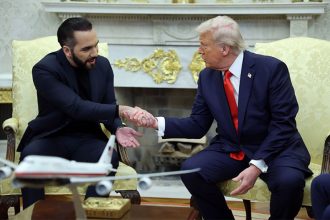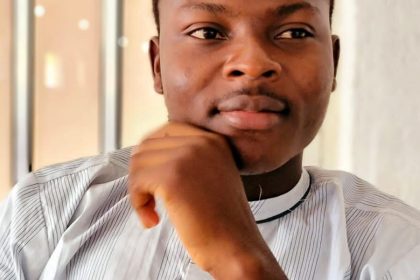Mr. Ousmane Diagana, Vice President of World Bank in Western and Central Africa, stated this in Abuja, during a meeting with Professor Nentawe Yilwatda, minister of Humanitarian Affairs and Poverty Reduction; Hon. Yusuf Tanko Sununu, minister of State for Humanitarian Affairs and Poverty Reduction; and Dr. Yakubu Kofamarta, permanent secretary.
While giving update on the initiative, Mr. Diagana said the delegation is Nigeria’s assess to the level of progress and challenges of social investment programme in the Ministry and pledged to support the initiative to meet the desired objective of reducing poverty in Nigeria.
While stressing the Bank’s support for Nigeria as a developing country to provide quality services by continuing to create jobs among others for the Citizens, he disclosed that World Bank has “a very large programme here in Nigeria worth more than $17 billion.”
Yilwatda, minister of Humanitarian Affairs and Poverty Reduction, described the World Bank as a dependable partner and maintained that the Ministry would continue to collaborate with relevant agencies including the United Nations with a view to ensure that more funds are provided to reduce poverty in the country with a target of 15 million households.
While applauding the clear leadership being provided by President Bola Tinubu for the success of the social investment programmes in the country, the Minister explained that “everybody who is going to benefit from this conditional cash transfer will be given a digital identity, so you have digital trust.
“And that is not just identity, but it’s a social inclusion and financial inclusion to hundreds and thousands of Nigerians who before now were not socially inclusive. They were not also financially included in Nigeria.
“You know, having over 70 million of Nigerians who before now have no account numbers, have no identity, you cannot trace their homes; you can’t trace their addresses.
“And today, while you’re taking all their homes, we also give digital identity, and we’re paying them conditional cash transfer.
“This the largest financial inclusion ever the history of Nigeria, and this is a bold step by Mr. President to ensure that the effect of the reforms that the government is doing is also being cushioned by this social investment that we’re having in the country.
Professor Yilwatda disclosed that the administration is “targeting 15 million households. Nigeria has roughly about we have roughly about 41 to 42 million households, the total number of household that we have in the country. So we are targeting 15 million households out of these 42 million households.
“So, if you look at the numbers, it means we are doing roughly about the neighborhood. Over 30% of the households that will benefit from this conditional cash transfer.
“Multiply that number by five, we’re taking off roughly about 60 million people will benefit from this conditional cash transfer, that’s targeting about 60 million people.
“15 million households, targeting about 60 million individuals within the households.
“Now if you look at these numbers, because the numbers are saying that roughly about 42% of Nigerians are living in poverty, those numbers simply shows that roughly about 90 million people, which means this cash transfer alone is targeting almost over 70% but people who are living under poverty in Nigeria by this conditional cash transfer, which is the largest ever in the history.”
According to him, each of the CCT beneficiaries is to receive the sum of N75,000.
“Already we’ve paid almost 6 million people, almost 6 million households, targeting about 30 million people have already been paid, and there are already evidences.
“We are going to even do a media talk for the to see the communities, because we are covering about 230,000 communities, cutting across all the 774 Local Governments, which means that, averagely almost every community in Nigeria has been captured under that is on this programme, and every village in Nigeria has been captured under this programme, and every village has a beneficiary. Every committee has beneficiaries across the entire country.
“I think this one of the most extensive program that has covered the entire country, you know, and effectively also, because the people that were targeting this program, we actually community based.
“So each village selected people that they are poor in the village, the women, the youths and the men, independently selected people that they feel they are poor, and they brought the name together.
“It is a community that signed off the name and sent to us. So they are not names from us, but their names from the communities that came up to us.
“And that’s why is the best way of targeting people when the village itself feel they can select the people that are poor within themselves, and they should be supported.
“So it is the communities that are telling us that these are people that you can support. So, we are supporting people that have been given to us by individual communities.”







